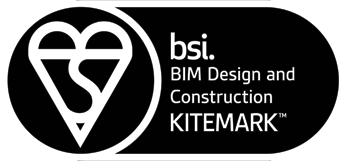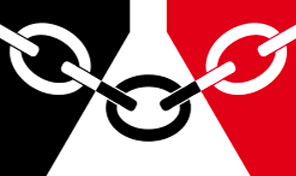Metsec announced as first tier 2 supplier to achieve Kitemark for BIM
 Oldbury-based cold roll-forming firm Metsec has been announced as the first tier two organisation globally to have achieved the new Kitemark PAS 1192-2 from the British Standards Institution (BSI Group).
Oldbury-based cold roll-forming firm Metsec has been announced as the first tier two organisation globally to have achieved the new Kitemark PAS 1192-2 from the British Standards Institution (BSI Group).
Metsec plc is owned by the voestalpine group, one of Europe’s leading specialist engineering companies. Established more than 80 years ago it provides steel framing, cable management and purlins for the construction and manufacturing industries and has supplied projects including the Queensferry Crossing, Resorts World and the Glasgow Velodrome.
The new Kitemark that it has achieved relates to BIM (Building Information Modelling). It acts as a seal of approval for construction businesses around the world to prove their capabilities in delivering projects at the design and construction phase.
The Kitemark is a UK product and service quality certification mark which is owned and operated by the BSI. The Kitemark is most frequently used to identify products where safety is paramount, such as crash helmets, smoke alarms and flood defences. It has been used for over a century to safeguard consumers and help businesses demonstrate clear commitment to excellence across everyday goods.
The new PAS 1192-2 Kitemark has been developed by the BSI in collaboration with the construction industry to ensure that it addresses key issues surrounding BIM implementation.
According to Metsec’s website Alan Harris, quality manager at Metsec, said: “Metsec was the first tier 2 designer and manufacturer complying with BIM Level 2 for Design and Construction in the UK and is pleased to cement this focus on BIM by achieving the new Kitemark associated with it. It’s great to see the importance of BIM being recognised, and being formalised by the BSI.
“BIM is an increasingly important part of the global construction market place, with governments around the world starting to make it a condition of contact. Seen as a game-changer for the construction industry, BIM is a collaborative way of working that uses digital technologies to enable more efficient methods of design and construction, ultimately driving out waste and inefficiency.”
Andy Butterfield, product certification director of built environment at BSI said: “In a competitive marketplace, companies delivering BIM projects need to find a way to differentiate themselves, regardless of whether they are tendering for public or private sector projects. The BSI Kitemark does just that, helping companies to demonstrate their commitment to best practice.
“BIM helps companies drive out waste and inefficiencies in their projects, reducing costs and environmental impact. Having the Kitemark for BIM will mean that companies are able to build their business in the new era of digital technology and access global markets, giving clients reassurance that they are working with partners at the highest possible standard”.
For more information about BIM, including funding, support, advice and awareness workshops, visit our Building Information Modelling (BIM) page.






